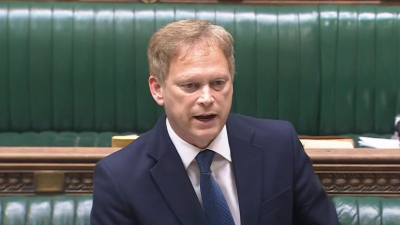As Wales commemorates 25 years since the inception of its Senedd, the journey from the modest beginnings of the Welsh Assembly to its current status as a fully-fledged parliament reflects a remarkable evolution in governance. Devolution expert Professor Laura McAllister, hailing from Cardiff University's Welsh Governance Centre, emphasizes the profound changes witnessed since the Senedd's inaugural election a quarter of a century ago.
In 1997, a pivotal referendum laid the groundwork for the establishment of the Welsh Assembly, endorsed by a slim majority of 50.3% of voters. The subsequent election in 1999 marked the dawn of a new era in Welsh politics. Reflecting on this transformative period, Professor McAllister characterizes the initial setup as akin to a local authority, contrasting sharply with the Senedd's current stature as a legislative body wielding substantial fiscal and financial powers.
The trajectory of Welsh devolution, she observes, has been unparalleled among its UK counterparts, having emerged from relatively humble beginnings to assume a pivotal role in the nation's governance. As plans materialize to expand the Senedd's membership from 60 to 96, Professor McAllister underscores the imperative of ensuring its effectiveness and relevance in contemporary governance.
However, amidst the milestones achieved, challenges persist, particularly in fostering robust voter engagement. Despite a quarter-century of Welsh government in action, voter turnout for Senedd elections remains subdued—a persistent concern for political stakeholders. Professor McAllister notes the enduring dominance of Welsh Labour in the political landscape, underscoring the need for ongoing dialogue and scrutiny regarding the Senedd's performance and accountability.
Against this backdrop, public sentiment towards the Welsh parliament appears mixed, with a majority expressing support for its existence, albeit with a notable minority opposing. Similarly, views on Welsh independence exhibit a spectrum of opinions, highlighting the complexities and nuances shaping contemporary Welsh identity and political aspirations.
Seeking broader perspectives, Sky News canvasses the opinions of residents along Welsh Street in Chepstow, Monmouthshire, capturing the diverse tapestry of views that define Wales's ongoing journey in self-governance. As Wales reflects on 25 years of devolution, the Senedd stands as a testament to the nation's aspirations and the enduring quest for democratic representation and self-determination.
In the bustling streets of Wales, voices echo with varying sentiments on the Senedd and the broader concept of devolution. Garry Davies, a local resident, laments a prevailing sense of disconnection, noting that many in the area feel alienated from the workings of the Senedd, leaving them on the fringes of decision-making processes.
Duncan Farron, echoing a sentiment shared by some, expresses skepticism towards devolution, viewing it as an additional bureaucratic layer devoid of necessity. "It's just another tier of government that we don't need, really," he remarks candidly, encapsulating a sentiment of disillusionment with the expansion of governmental structures.
However, amidst the skepticism, Leila Phillips provides a counterpoint, highlighting the benefits of devolution, particularly in policy areas like education. Drawing attention to Wales's innovative strides in implementing a new curriculum, she underscores the advantages of localized decision-making, contrasting Wales's progress with perceived stagnation in England.
As diverse perspectives intertwine, Professor McAllister offers insights into the broader landscape of Welsh sentiment towards devolution. Despite disagreements with specific governmental actions, she notes a prevailing support for the institution of devolution itself. Drawing parallels with the UK's national government, she elucidates how dissent towards policies does not necessarily equate to calls for the abolition of governmental structures—an observation that underscores the nuanced relationship between governance and public opinion.
In the tapestry of Welsh discourse, divergent views intersect, reflecting the dynamic interplay between governance, public perception, and the ongoing quest for effective representation. Amidst the cacophony of opinions, the pulse of Welsh democracy beats, fueled by dialogue, dissent, and the enduring pursuit of a more inclusive and responsive governance model.
In the bustling streets of Wales, voices echo with varying sentiments on the Senedd and the broader concept of devolution. Garry Davies, a local resident, laments a prevailing sense of disconnection, noting that many in the area feel alienated from the workings of the Senedd, leaving them on the fringes of decision-making processes.
Duncan Farron, echoing a sentiment shared by some, expresses skepticism towards devolution, viewing it as an additional bureaucratic layer devoid of necessity. "It's just another tier of government that we don't need, really," he remarks candidly, encapsulating a sentiment of disillusionment with the expansion of governmental structures.
However, amidst the skepticism, Leila Phillips provides a counterpoint, highlighting the benefits of devolution, particularly in policy areas like education. Drawing attention to Wales's innovative strides in implementing a new curriculum, she underscores the advantages of localized decision-making, contrasting Wales's progress with perceived stagnation in England.
As diverse perspectives intertwine, Professor McAllister offers insights into the broader landscape of Welsh sentiment towards devolution. Despite disagreements with specific governmental actions, she notes a prevailing support for the institution of devolution itself. Drawing parallels with the UK's national government, she elucidates how dissent towards policies does not necessarily equate to calls for the abolition of governmental structures—an observation that underscores the nuanced relationship between governance and public opinion.
In the tapestry of Welsh discourse, divergent views intersect, reflecting the dynamic interplay between governance, public perception, and the ongoing quest for effective representation. Amidst the cacophony of opinions, the pulse of Welsh democracy beats, fueled by dialogue, dissent, and the enduring pursuit of a more inclusive and responsive governance model.







